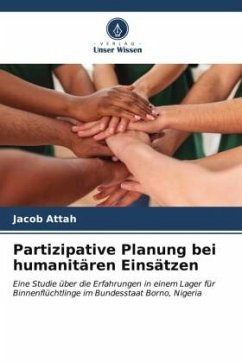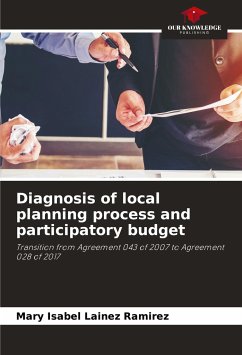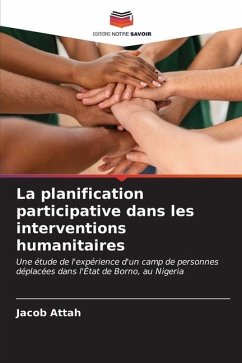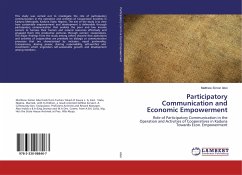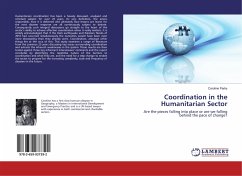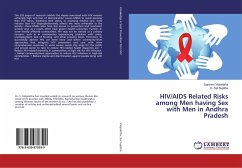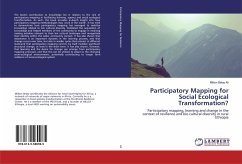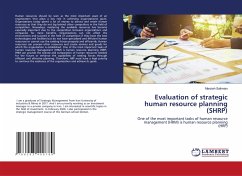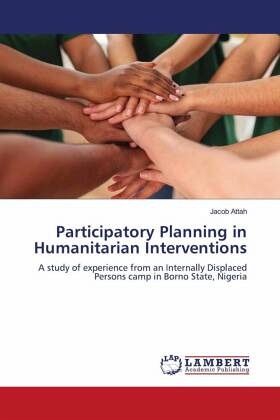
Participatory Planning in Humanitarian Interventions
A study of experience from an Internally Displaced Persons camp in Borno State, Nigeria
Versandkostenfrei!
Versandfertig in 6-10 Tagen
29,99 €
inkl. MwSt.

PAYBACK Punkte
15 °P sammeln!
The delivery of humanitarian aid is provided to bring relief to affected persons, and any intervention that seeks to effectively do so must seek to engage the people it proposes to help in making decisions that affect their lives. This has been the global focus and drive by the systems and stakeholders that facilitate and promote humanitarian programming. This study sought to understand the current practices around engaging in participatory planning by humanitarian actors responding to the protracted conflict within Nigeria with interventions in Yajiwa IDP camp, in Borno State being the case s...
The delivery of humanitarian aid is provided to bring relief to affected persons, and any intervention that seeks to effectively do so must seek to engage the people it proposes to help in making decisions that affect their lives. This has been the global focus and drive by the systems and stakeholders that facilitate and promote humanitarian programming. This study sought to understand the current practices around engaging in participatory planning by humanitarian actors responding to the protracted conflict within Nigeria with interventions in Yajiwa IDP camp, in Borno State being the case study.This study employed a multi-method approach to data collection on participants selected using defined inclusion criteria to obtain information to meet study objectives. The importance of participation in accountability makes it necessary for humanitarian actors to make deliberate efforts to ensure they consciously engage the affected population in making decisions that affect their lives



